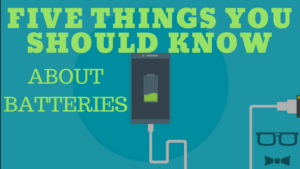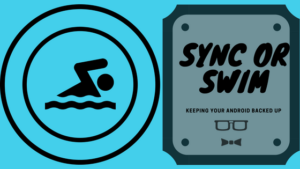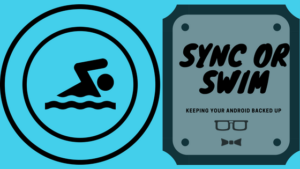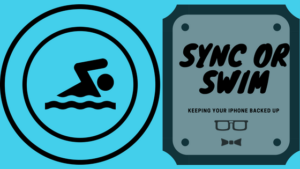Two weeks ago we talked about how to spot and avoid Tech Support Scams, but what if you’ve already been caught up in a scam? First, it’s important to realize that it isn’t your fault. The people running these scams are professionals and you are not alone in falling for it. Each year, according to Microsoft, about 3.3 million people are caught in these scams and the scammers take in up to 1.5 billion dollars. Now that we know there are a lot of people being hit by this, let’s look at what we can do if you’ve been hit. Here are seven things you need to do to recover from a Tech Support Scam.
The 6 Best Ways to Spot Tech Support Scams – Y-Not Tech Services
Tech Support Scams are becoming a real problem. Each week I hear of people paying anywhere from $200-$800+ for tech support and not getting anything from it. Today I’ll expose the ways tech support scammers trick their victims so that you can avoid being caught. Here are the six best ways to spot a Tech Support Scam.
Choosing a New Printer | Y-Not Tech Services – Lethbridge, AB
I recently got a new printer for Y-Not Headquarters and I thought I’d talk a little bit about the factors I looked at when I chose to replace it. I’ll also talk about why I chose the printer I did.
Why I Got a New Printer
In this case, I didn’t need a new printer. The one I had was working fine, however, I was replacing the ink at an alarming rate. The printer I had was not one I would ever choose to use for a business (or home for that matter…), but it was given to me by a client that couldn’t get it to work and chose to just replace it instead of trying to get it to work. He nearly forced me to take it, and since I didn’t want to be rude I obliged. When I got it back to headquarters and tried it out, I found that it worked just fine. I let my client know, but he didn’t want it back, so I started printing out Flyers to promote my business. I printed about 50 before needing to replace the ink. [Read more…]
Does Your Mac Need Antivirus? | Y-Not Tech Services | Lethbridge, AB
I get asked this question a lot when I’m working with clients. It seems that every Windows User knows they need an Antivirus (although they often don’t have one that’s properly installed and updated), but Apple users are more hesitant about it, and I often get asked:
Should I be using Antivirus on my Mac?
How To Free Up Hard Drive Space in Windows 10 – The Easy Way
Windows 10’s next major release is scheduled to drop sometime in October of 2018 and Microsoft has announced that there is a small problem with it. The update fails to check if the PC has enough storage space to install the update. If the PC is lacking in hard drive (or Solid State) space, the update will fail, and then try again. And fail. And then try again. And fail. Well, I think you get the picture. The biggest problem with this scenario is that you will see a poorer performance from your PC while it tries to install the update, and since it will keep trying to install, the poor performance will continue. So in this post, we’ll show you a simple way to free up Hard Drive space in Windows 10. [Read more…]
Sync or Swim: How to Change From iPhone to Android or Android to iPhone and Take Your Data With You – Y-Not Tech Services | Lethbridge, AB
“New Phone, same number. Lost my contacts, so text me your name and I’ll add you.”
“Phone just died and I lost all my Pictures! I’m so upset!”
Has this ever happened to you? It seems like I see messages like this every day on social media. If it’s happened to you, or you’re afraid it will happen to you, I’m here to help. With a series of blog posts, I will show you how to ensure you are staying synced and up to date so You don’t need to worry. Two weeks ago we looked at keeping your iPhone’s Contacts and Photo’s backed up. Last week we looked at Android. Now, let’s look at ways you can switch from iPhone to Android, or vice versa while taking your data with you.
Why Should You Sync Your Phone’s Data?
If you have anything on your phone you want to keep, you should keep a copy backed up somewhere. There are too many bad things that can happen to our devices. They can stop working altogether. They could be lost or stolen. They can get dropped making it difficult to access our data. And chances are, we have some valuable data on our phones. Photos of your family? Video of your child’s first steps? Pictures of your last vacation? Your last 3 vacations? How about the phone number of everyone you know? How many phone numbers can you remember without accessing your phone’s contact list? We have come to rely on these devices a lot in our lives, and the data on them is important. [Read more…]
Sync or Swim: How to Keep Your Android’s Data Backed Up – Y-Not Tech Services | Lethbridge, AB
NOTE: Samsung Galaxy devices run on the Android Operating system, and so this guide will work for these devices as well.
NOTE 2: Because Android runs on literally thousands of different phones and manufacturers often ‘skin’ android to make it look different some instructions might not jive with your device. The general procedure should still be the same. Feel free to contact me if you want assistance.
“New Phone, same number. Lost my contacts, so text me your name and I’ll add you.”
“Phone just died and I lost all my Pictures! I’m so upset!”
Has this ever happened to you? It seems like I see messages like this every day on social media. If it’s happened to you, or you’re afraid it will happen to you, I’m here to help. With a series of blog posts, I will show you how to ensure you are staying synced and up to date so You don’t need to worry. Last week we looked at keeping your iPhone’s Contacts and Photo’s backed up. This week, we’ll look at doing the same on Android. Finally, next week, we’ll look at ways you can switch from iPhone to Android, or vice versa while taking your data with you. [Read more…]
Sync or Swim: How to Keep Your iPhone’s Data Backed Up – Y-Not Tech Services | Lethbridge, AB
“New Phone, same number. Lost my contacts, so text me your name and I’ll add you.”
“Phone just died and I lost all my Pictures! I’m so upset!”
Has this ever happened to you? It seems like I see messages like this every day on social media. If it’s happened to you, or you’re afraid it will happen to you, I’m here to help. With a series of blog posts I will show you how to ensure you are staying synced and up to date so You don’t need to worry. This week we’ll look at keeping your iPhone’s Contacts and Photo’s backed up. Next week, we’ll look at Android. Finally, we’ll look at ways you can switch from iPhone to Android, or vice versa while taking your data with you.
Why Should You Sync Your iPhone’s Data?
If you have anything on your phone you want to keep, you should keep a copy backed up somewhere. There are too many bad things that can happen to our devices. They can stop working altogether. They could be lost or stolen. They can get dropped making it difficult to access our data. And chances are, we have some valuable data on our phones. Photos of your family? Video of your child’s first steps? Pictures of your last vacation? Your last 3 vacations? How about the phone number of everyone you know? How many phone numbers can you remember without accessing your phone’s contact list? We have come to rely on these devices a lot in our lives, and the data on them is important. It’s smart to have your data synced before something happens. If you wait, it will be harder, more expensive or maybe even impossible to retrieve your data. [Read more…]
Five Things You Should Know About Batteries – Y-Not Tech Services | Lethbridge, Alberta
 We all use devices with batteries in them. From our smartphones and laptops to smartwatches and iPads, all of our gadgets contain batteries. So here are 5 things you should know about to help make sense of your batteries.
We all use devices with batteries in them. From our smartphones and laptops to smartwatches and iPads, all of our gadgets contain batteries. So here are 5 things you should know about to help make sense of your batteries.
Lithium-Ion Powers Most of Our Devices
Almost all current devices use Lithium-Ion Batteries. They have advantages over previous types like Ni-Cad but come with their own set of quirks. Myths abound concerning how we should care for batteries. One Myth I can lay to rest is that Lithium Ion batteries do not have a ‘memory.’ Ni-cad or possibly a type of battery that came before it did have a sort of memory, that would cause the battery to lose capacity based on how much of the battery’s power was used each cycle. With these, it was important to fully discharge the battery before charging it up to maximize its capacity. This is not true of Lithium-Ion Batteries. Moving forward, everything on this list will refer to Lithium Ion Batteries.
Your Laptop Will Not ‘Overcharge’ The Battery
I’ve seen people claim that you should remove the battery from your Laptop as soon as it is charged if you are plugged into the wall to avoid overcharging and damaging the battery. The truth is that your laptop will stop charging the battery when it reaches 100%. Then the laptop will simply monitor the battery while using AC power to operate the machine. Over time, the battery will still lose part of its charge, and the laptop will top it up as it does.
Your Battery Will Lose Capacity Over Time
A battery has a limited lifespan. Most of them are around 500 charges, but different manufacturers and varieties will have different lifespans. This means that over time, as you use a battery it will lose capacity and start holding less and less of a charge. Eventually, the battery will get to the point where it hardly makes it from the desk to the couch. Then it’s time to replace it! Did you know that Y-Not Tech Services can find a replacement battery for almost any device? Contact us for a quote.
Batteries Do Not Like Heat (Or Extreme Cold)
Batteries are designed to be used within a certain temperature range. Luckily, that range is also the range that humans are generally pretty comfortable in. However, if your device is creating excessive heat, like say a powerful laptop being taxed while playing graphically demanding games, your battery can be affected. High heat can cause damages to a battery and cause it to lose capacity. The same is also true for cold, but it’s generally well below the freezing point where damage can occur – like using your phone outside on a lovely Canadian winter day… In most circumstances, the heat of the phone will be enough to keep it going, but some devices are prone to shut down in wintery conditions.
Your Battery Might Need to Calibrate
If your device battery is depleted, but the device itself was still reading 20% left, the battery might need to be calibrated. This means letting the device learn how much capacity the battery has left. The most common way to do this is to simply let the battery deplete all the way and then charge it up to full. Most devices are designed to re-calibrate under these conditions. Refer to your device manufacturer for more information on battery calibration or contact Y-Not Tech Services to have us calibrate your battery for you.
Batteries can be a confusing and often frustrating part of dealing with technology. Learning about the batteries that power our gadgets can help us to understand why they behave how they do, and help us get the most out of them.
Personally, I think the most important thing to remember about batteries is that they do wear down over time and sometimes replacing them can breathe new life into our devices. To get a quote to replace a problem battery in your life, book an appointment:
Get Back to Brand New with a Refreshed Computer | Y-Not Tech Services – Lethbridge, AB
Get Back to Brand New with a Refreshed Computer
Remember how well your computer ran when you first brought it home? It was booting so fast, files were whizzing around at light speed, and no matter how many tabs you had open, nothing was slowing that baby down. It was spotless, inside and out. Then one day you turned it on and everything was so slooooow, taking forever to do anything – and that was only if you could even find your files in all the clutter. All that zip and speed you loved so much was gone
The good news is you probably DON’T need a new computer, you simply need what we call a “format and reload” to:
Clear the clutter: Over time as you install applications you collect icons, files and options everywhere. They’re not necessary, they’re not used, but they were installed automatically ‘just in case’. It’s a bit like when your overnight guest shows up with a massive suitcase and then claims a shelf in your bathroom. Those applications are making themselves at home in a big way! All that uninvited clutter is slowing your system down and making it hard for you to find the things you need. Simply put, it’s a mess. Our technicians can clean your system back to pristine in no time.
Beat viral overload: Is the virus really gone? Sometimes a virus has multiple layers and can bury itself so deep even your anti-virus doesn’t see it. Despite getting the all-clear from your anti-virus, you might also be seeing the damage from the infection. Perhaps the virus made a mess of your internal file structure, left pieces of code all over the place, or deleted files essential for smooth running. When an infection has been cleared but the system is still running slow, we recommend dropping it into our store asap for a check-up and refresh.
Assess incompatible software: Installing a new piece of software can sometimes produce unexpected results. While your system met the hardware and operating system requirements, maybe it’s simply not playing nice with your other applications. Maybe they’re fighting over the same resources, system files, or clashing with one of your hardware components. Clearly, something isn’t quite right, but you’re not sure what. Our team loves to play detective and get your system back to normal.
Archive older files: Some of your files are definite keepers, long term. Your photos, recipes, accounts etc, they’re all important to keep – but are they important to keep sitting on your desktop? They’re not just slowing your computer down, you’re at risk of losing them in a crash. It’s much safer to archive them to an external drive or cloud storage, simply let us know what you’d like to keep.
What exactly is a computer refresh? It’s like a car tune-up, but more flexible. Rather than tick the boxes saying we’ve changed the oil, cleaned the filters etc, we treat each computer as a unique case. Sometimes we can tune it up in a few minutes, and that’s all it needed. Sometimes it’s worth starting over like day 1.
We can reinstall Windows and migrate your data (photos, docs, emails, bookmarks, etc), putting back only what you WANT to keep. The rest of the clutter that built up over time or piggy-backed on a virus gets flushed away. We can also set up your email and install any devices you need, like printers. It’s doing whatever is necessary to give you a fresh start with your computer, but keeping the essentials.
Ready to get back up to speed? Book an appointment:
- « Previous Page
- 1
- …
- 15
- 16
- 17
- 18
- 19
- …
- 21
- Next Page »










